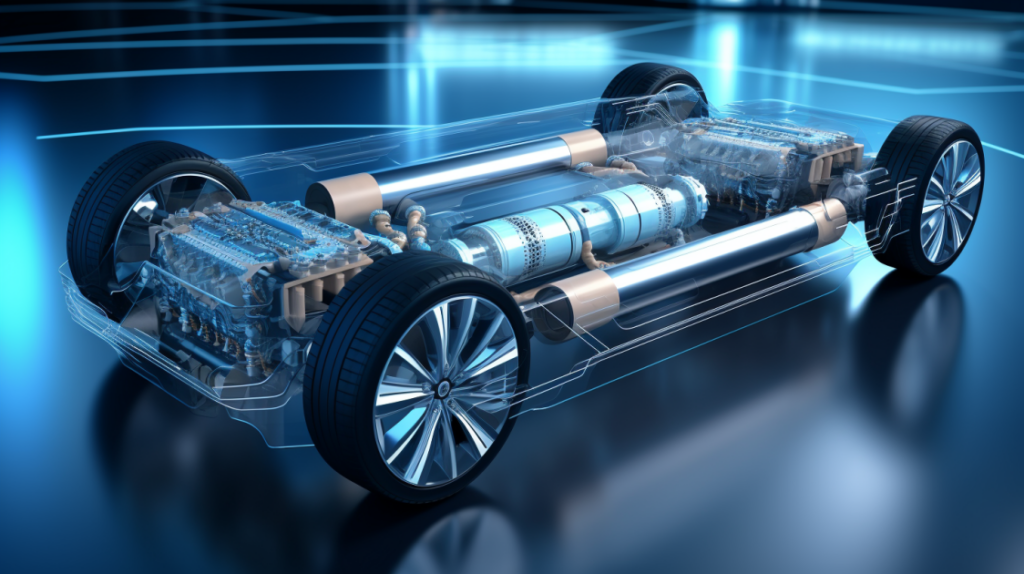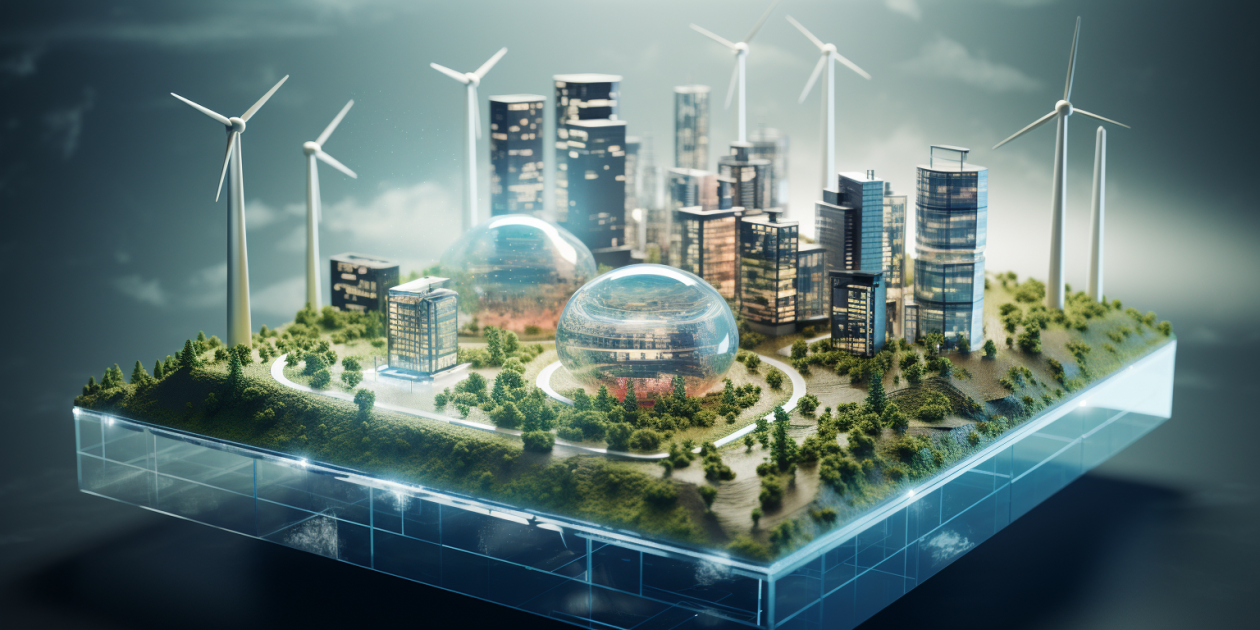As we stand on the brink of an unparalleled transformation in the railway industry, we’re eagerly anticipating a future fuelled by groundbreaking traction technologies. Traction power, the crucial driving force propelling our locomotives, is advancing at an impressive rate. Innovations such as regenerative braking, battery-operated trains, and fuel cell technology are at the forefront of this rapid evolution. This in-depth exploration will dive into these thrilling advancements, their influence on the future direction of railways, and the potential trends we can expect to see emerging in the upcoming years.
Table of Contents
Understanding Traction Power
At its core, traction power is the heartbeat of any railway system. It’s the propelling force that pushes trains forward, enabling them to ferry passengers and cargo across vast distances. Traditionally, the sources of traction power have been diesel and electricity. However, the relentless pursuit for more sustainable, efficient, and cost-effective solutions has given birth to new traction power technologies.
Regenerative Braking: The Energy Recycler
Regenerative braking is a remarkable technology that recovers and reuses energy that would otherwise dissipate during braking. As a train decelerates, the electric motor reverses its role, acting as a generator and transforming kinetic energy into electrical energy. This energy is either returned to the power grid or stored for future use, significantly enhancing energy efficiency and reducing carbon emissions.
Battery-Powered Trains: A New Era of Rail Transport
Battery-powered trains represent another groundbreaking development in traction power technology. These trains operate on high-capacity batteries, eliminating the necessity for overhead power lines or diesel fuel. Battery-powered trains offer a plethora of advantages, including reduced operational costs, diminished noise pollution, and zero emissions. Their ability to run on non-electrified tracks also provides greater flexibility, making them a perfect solution for rural or remote areas.
Fuel Cell Technology: The Green Powerhouse
Fuel cell technology is arguably the most revolutionary advancement in traction power technology. Fuel cells generate electricity through an electrochemical reaction, utilising hydrogen and oxygen. This process produces zero harmful emissions, with water being the only by-product.
Fuel cell trains offer several benefits, including high energy efficiency, reduced operational costs, and environmental sustainability. They provide a viable alternative to traditional power sources, as they are independent of fossil fuels or overhead power lines.
Despite the promising potential, the widespread implementation of fuel cell technology in railways faces challenges. These include the high initial cost of fuel cells and the requirement for a robust infrastructure for hydrogen production and refuelling. However, with countries like Germany and Japan already operating fuel cell-powered trains, the future of this technology in railways looks bright.

Future Trends in Traction Power Technologies
As we gaze into the future, we can anticipate a continued shift towards more sustainable and efficient traction power technologies. Battery and fuel cell technologies are likely to become more widespread, propelled by advancements in energy storage and fuel cell efficiency. We may also witness the integration of renewable energy sources, such as solar and wind power, into railway systems.
The rise of digitalisation and smart technologies will also play a pivotal role in shaping the future of railways. Smart grids could optimise energy use and distribution, while predictive maintenance technologies could enhance the reliability and lifespan of traction power systems.
Hydrogen and Future Fuels: The Game Changers
Hydrogen, as a clean and abundant energy source, is set to play a significant role in the future of railway traction power. Hydrogen fuel cells, which convert chemical energy into electricity, offer a sustainable and efficient solution for powering trains.
In addition to hydrogen, other future fuels such as biofuels and synthetic fuels could also be utilised in railway systems. These fuels, derived from renewable resources, could significantly reduce the carbon footprint of railways.
Moreover, the development of hybrid systems, which combine different power sources, could offer a flexible and efficient solution for railway traction power. For instance, a train could use a combination of battery power, fuel cells, and renewable energy, optimising energy use and reducing emissions.
Implementation Challenges of Hydrogen and Future Fuels
While hydrogen and future fuels hold great promise for the railway industry, their widespread implementation faces several challenges. Addressing these challenges is vital to harness the full potential of these game-changing technologies. Here are some key implementation challenges:
- Lack of Infrastructure: One of the major hurdles is the absence of a robust infrastructure for hydrogen production and refueling. Building hydrogen production facilities and establishing a network of refueling stations require significant investment and coordination between industry stakeholders.
- Cost Considerations: Currently, hydrogen fuel cell systems are more expensive compared to traditional diesel or electric propulsion systems. The high cost of fuel cell technology poses a barrier to its widespread adoption. However, with advancements in technology and economies of scale, the cost is expected to decrease in the future, making it more affordable for railway operators.
- Safety and Reliability: Ensuring the safety and reliability of hydrogen fuel cells is crucial. While hydrogen is a clean fuel, concerns exist regarding its flammability and the potential for leaks. Establishing rigorous safety standards and protocols is essential to address these concerns and build trust in the use of hydrogen as a fuel source for trains.
Other Key Considerations
Other significant hurdles to consider::
- Regulatory Framework: Developing a supportive regulatory framework is critical for the successful implementation of hydrogen and future fuels. Governments need to establish policies and regulations that encourage the adoption of these technologies, provide incentives for investment, and ensure compliance with safety and environmental standards.
- Research and Development: Continuous research and development are necessary to improve the efficiency and performance of hydrogen and future fuel technologies. Investment in R&D will help overcome technical challenges, optimize energy conversion processes, and enhance the overall viability of these technologies.
- Public Perception and Acceptance: Building public acceptance and confidence in hydrogen and future fuels is essential. Educating the public about the benefits, safety measures, and environmental impact of these technologies can help dispel misconceptions and generate support for their implementation.
Addressing these implementation challenges requires collaboration between governments, industry stakeholders, and research institutions. Investment in infrastructure, research, and development, along with supportive policies and regulations, will be crucial to overcome these hurdles and unlock the full potential of hydrogen and future fuels in the railway industry.
The Future is Now
The future of railways is undoubtedly thrilling, with traction power technologies paving the way for a more sustainable, efficient, and cost-effective rail transport system. As we continue to innovate and push the boundaries of what’s possible, one thing is clear: the railway revolution is just getting started, and traction power is at the heart of it all. As we journey towards this exciting future, we invite you to come along for the ride.



